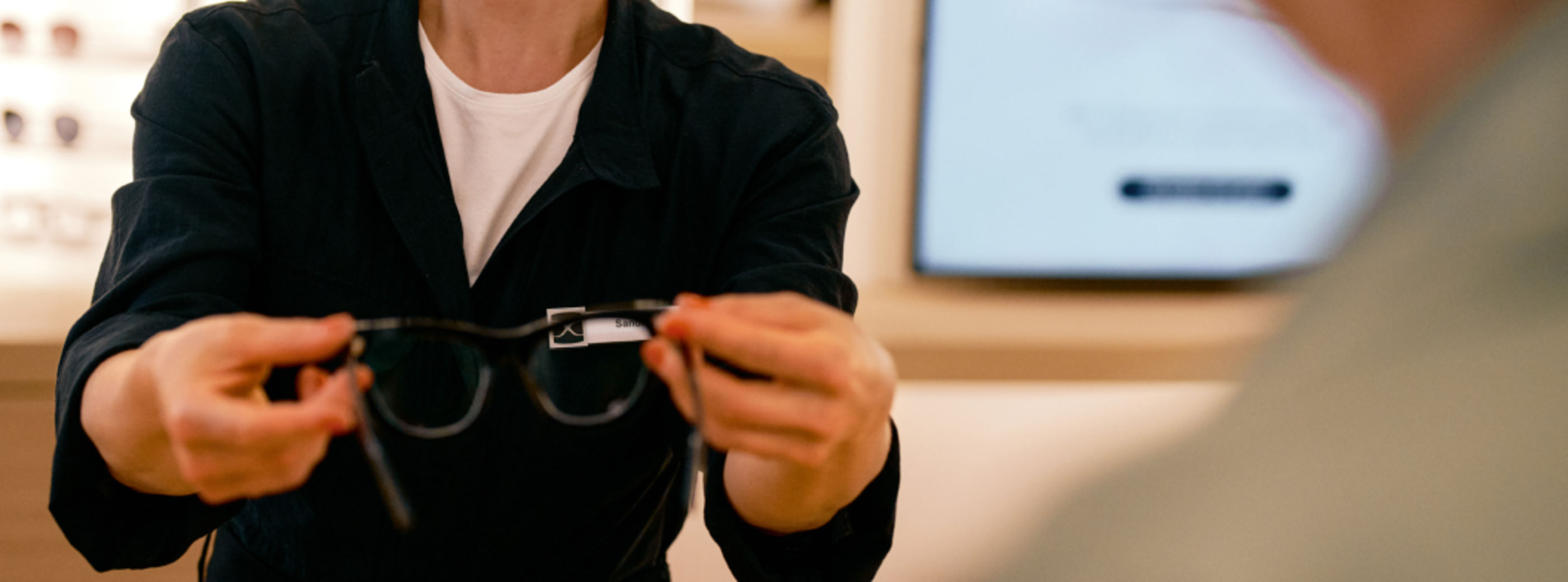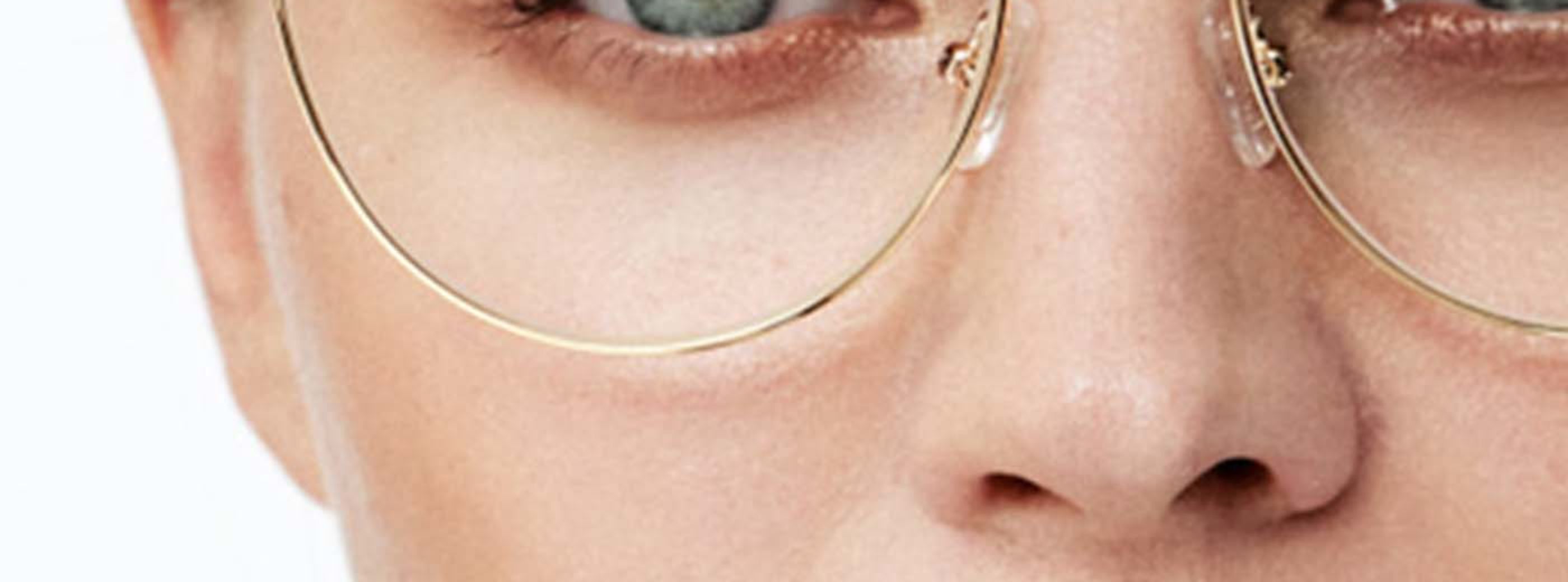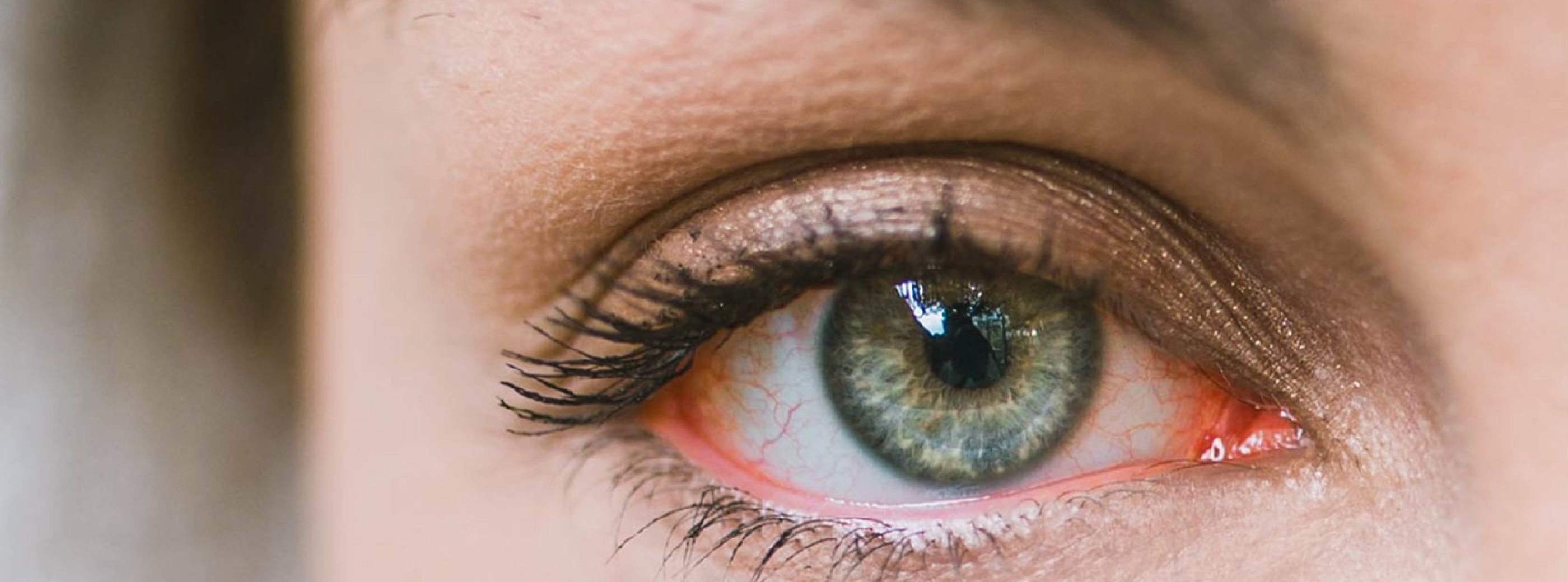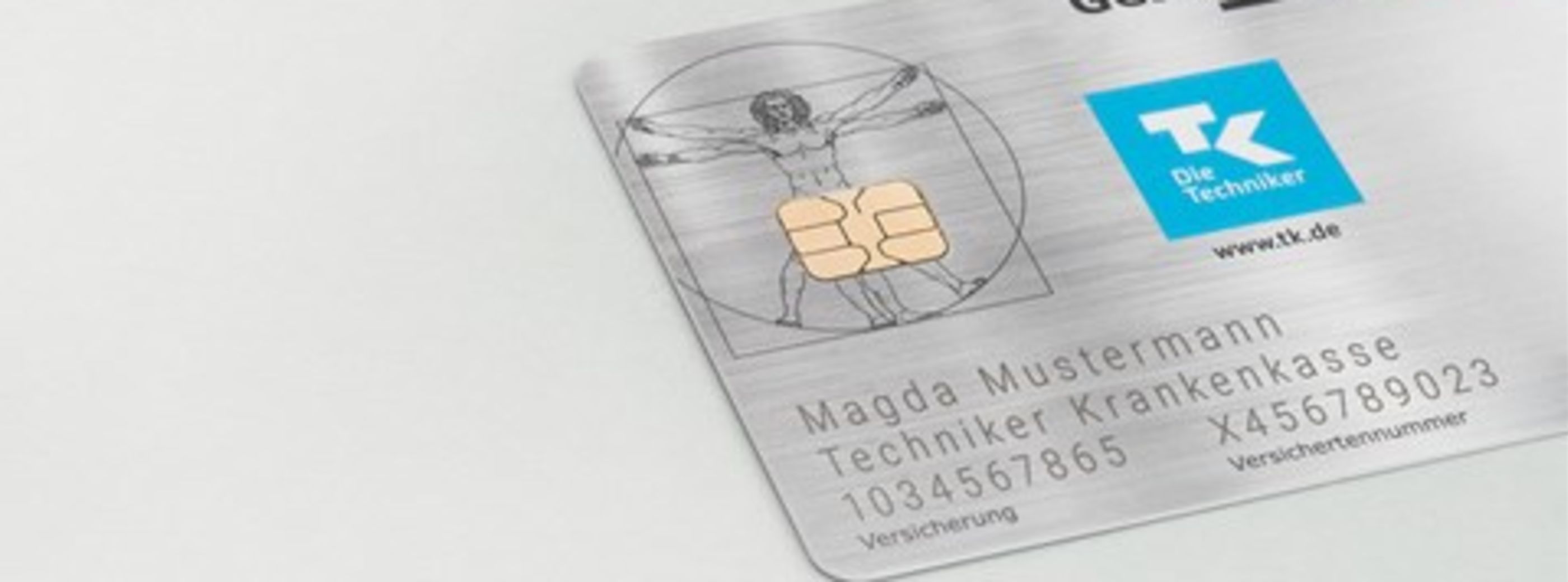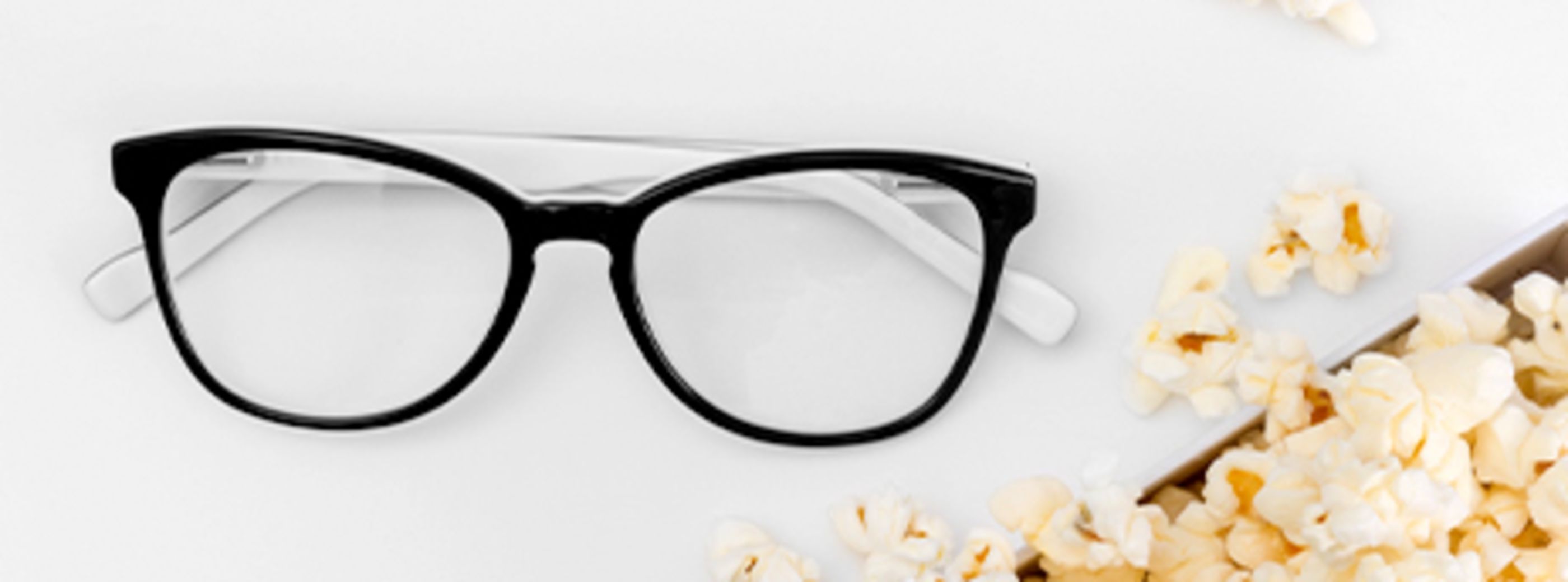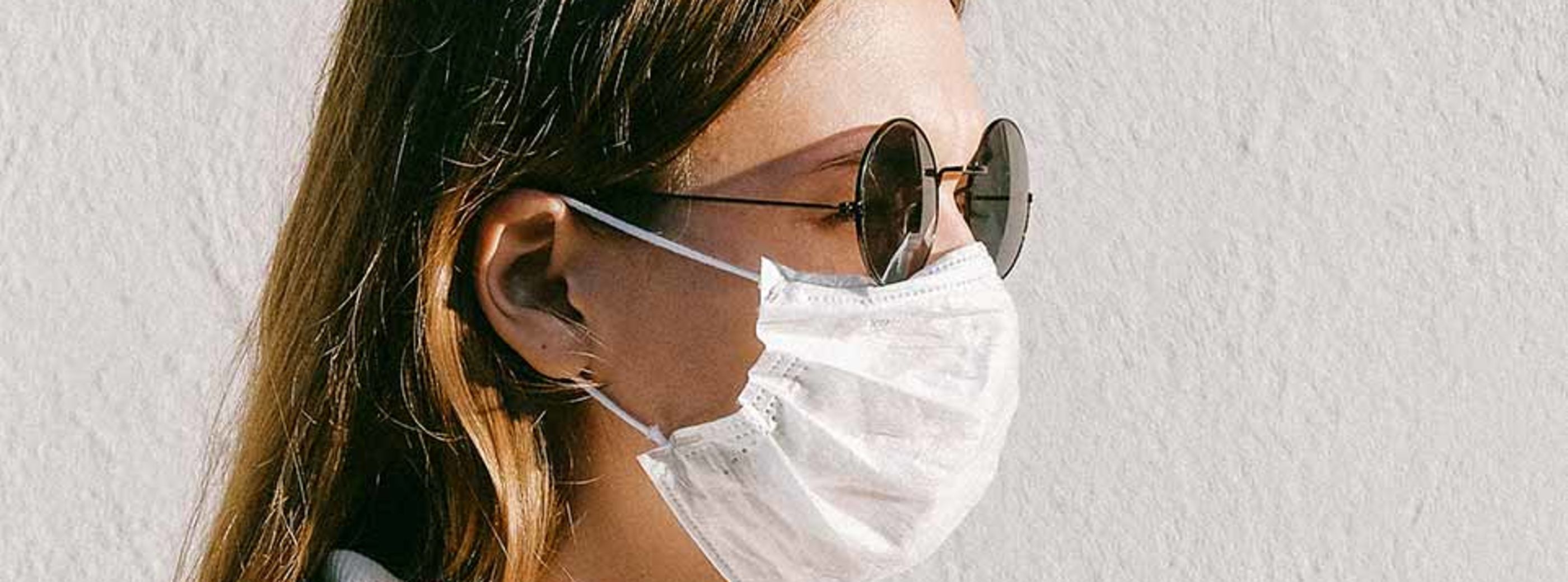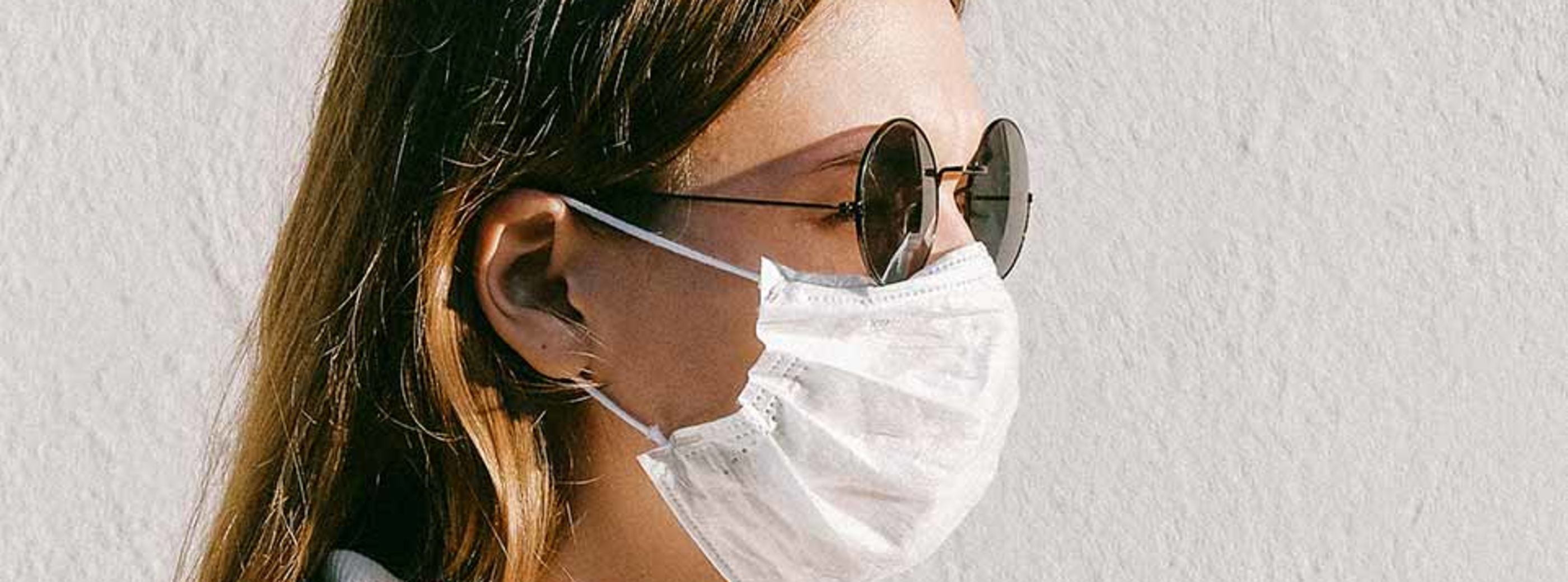Coronavirus - Frequently asked questions about eye protection and hygiene
1. The coronavirus and eyes
Can the coronavirus be transmitted through the eyes?
Harmful germs can enter our body not only through the nose and mouth, but also through the eyes. The exact percentage distribution between the three sensory organs is not yet known. We therefore recommend that you do not touch your face and eyes with unwashed hands. You can find out how to wash your hands correctly here.
Sources: Centers for Disease Control and Prevention¹ & Harvard Medical School²
Can the eyes also be affected by the virus?
According to the renowned American Academy of Opthalmology, conjunctivitis (medical term: conjunctivitis), in which the patient also suffers from fever and breathing difficulties, can be an indication of coronavirus infection. Conjunctivitis typically manifests itself through red eyes and stuck eyelids - on one or both eyes. However, it is not yet clear how often this actually occurs. A study from China³ speaks of 0.8% of patients with a confirmed corona diagnosis, another study in cooperation with Yale University⁴ speaks of 4.68% of patients. The Yale study also reports that 20.97% of the corona patients examined suffered from dry eyes, 12.73% from blurred vision and 11.80% felt that they had a foreign body in their eye.
The American Academy of Ophthalmology explains what this means for opticians and ophthalmologists here⁵.
How can I protect myself from the coronavirus?
Always follow the current guidelines of the relevant authorities in your country. In the UK, these include the UK goverment⁶ and the NHS⁷ As a general rule:
Reduce contacts to a minimum. That means spending time only with the people who live in your household.
If you go out, stay 2 metres (6ft) away from other people at all times
Wash your hands regularly and thoroughly (more information on recommended hand washing can be found here.
It is best to sneeze or cough into a disposable handkerchief. Use it only once and then throw it in a bin with a lid. If you don't have a handkerchief with you, hold your arm in front of your mouth and nose when coughing and sneezing.
Can sport and exercise prevent the virus?
According to the Robert Koch Institute in Germany, elderly people aged 50 to 60 years, smokers and people with certain pre-existing conditions of the cardiovascular system, the lungs and the liver, as well as patients with diabetes, cancer and a weakened immune system, have an increased risk of severe disease progression. If you are healthy and able to do outdoor sports in the fresh air, this generally has a positive effect on your health and circulation. As Professor Christian Drosten, head of virology at the Charité hospital in Berlin, mentions in his daily Coronavirus-Podcast⁸, a healthy circulation is particularly important in the event of a severe case of the coronavirus.
If you need glasses for training or workout, we can recommend sports glasses with prescription or sports sunglasses. We only sell high-quality sports glasses and sunglasses from brands such as Oakley, Ray-Ban, adidas and Alpina.
Do I run an increased risk of getting the virus when I exercise outside?
Previous coronavirus studies suggest that the disease is mainly transmitted from person to person by small droplets from the nose or mouth, rather than being spread through larger distances in the air. If you are playing sports outside, either alone or with another person to whom you keep a safe distance of 1.5 metres, the chance of getting infected outdoors seems is slim.
Source: World Health Organisation⁸
2. The coronavirus and glasses
Do glasses protect against the virus?
Special goggles are required for people who have frequent and close contact with corona patients. This is the case, for example, with medical staff and police officers. The glasses and sunglasses we sell are not suitable for this purpose and should therefore not be used for self-protection.
Can the virus stick to my glasses?
Yes, that is possible. According to the German Federal Institute for Risk Assessment⁹, the virus can spread via droplets (a droplet infection) or through surfaces that have recently been contaminated (a smear infection). A droplet infection is much more likely than a smear infection. If we transfer this knowledge to glasses, there are two possibilities. First, an already infected person can leave droplets on our glasses by talking, sneezing or coughing at us at close range (<1.5 meters). Second, we can touch an object previously touched by an already infected person and then touch our glasses.
Can I be infected through my glasses?
Although it is possible that the virus may stick to the glasses, but transmission of the virus through the glasses is unlikely. With a droplet infection, you have to get very close to a sick person so that they can leave viruses on your glasses. If you are in close proximity with a sick person, you would probably be infected by a droplet infection through your nose or mouth, and not through the indirect route of the glasses. In the case of a smear infection, the virus is transmitted via (several) objects, so that when it lands on your glasses, it is already 'thinned out'. However, it is better to be cautious at all times. Don't take any risks and keep your distance from other people, try not to touch your face or glasses and wash your hands regularly and thoroughly. In addition, laboratory tests by an American study showed that corona viruses can remain infectious for a maximum of 2-3 days on stainless steel and plastic after severe contamination. In our logistics department, we work under very strict hygiene measures using disinfectants to eliminate any chances of contamination. If you add in the additional shipping time of our products, corona viruses infection is highly unlikely according to the current state of knowledge.
Should I clean my glasses differently or more intensively?
As described, it is rather unlikely that an infection takes place through glasses. However, as a study from the USA¹⁰ suggests that viruses on plastic can remain active for 2 to 3 days, you should clean your glasses and sunglasses more regularly than usual as a precautionary measure. Get into the habit of cleaning not only your hands but also the frame of your glasses after you have been outside. A drop of soap or pH-neutral detergent is a good idea. Then rinse the glasses thoroughly with water and dry them with a paper towel.
3. The coronavirus and contact lenses
What should I pay attention to when inserting and removing my contact lenses?
What applies in principle also applies now: always wash your hands thoroughly before inserting or removing contact lenses. This should take at least 20 seconds and consist of the following steps:
1. Get your hands wet.
2. Soap your hands thoroughly: both the palms of your hands and the back of your hands, fingertips including fingernails, spaces between fingers and thumbs should be rubbed in.
3. Gently rub the soap into all areas.
4. Rinse hands under running water.
5. Dry your hands thoroughly, including the spaces between your fingers. This also removes the germs that may still stick to the hands or in the water droplets on the hands. If you use a towel instead of a paper towel, you should wash the towel at 60 degrees more often than usual.
An even more detailed description of hand washing¹¹ is available from the World Health Organisation (WHO).
Can the virus get into my contact lenses case and survive in there?
This is possible, a study from the USA previously mentioned indicates that viruses on plastic can remain active for 2 to 3 days. Since your contact lenses case is usually only touched by yourself, the chance of getting infected through the case is very slim. However, to avoid taking any risks, we advise you to rinse the container with a little soap every few days. Then dry the container thoroughly with a towel so that no soap residue gets on the lenses and into the eye.
What else should I be aware of regarding coronavirus in contact lenses?
At the end of the day, contact lenses can feel a little dry. It is then very tempting to touch them with your fingers a little to reduce the unpleasant feeling for a short time. What is normally the case now applies even more: do not touch your eyes or contact lenses with your fingers. It is better to choose high-quality eye drops to moisturise your eyes from time to time or consider switching to other contact lenses. The latest generation of contact lenses from brands such as Biofinity, Air Optix, Dailies and our own brand TrueLens have an increased hyaluron content, which means that the eyes are even better moisturised and therefore remain fresh and moist for longer.
ATTENTION: Most of the studies mentioned have not yet been peer reviewed due to the rapid spread of the virus. Scientific articles are subjected to critical review by experts before they are published. This FAQ is updated regularly to provide you with the latest information and scientific insights on the coronavirus in the UK.
Sources
¹https://www.cdc.gov/coronavirus/2019-ncov/prevent-getting-sick/how-covid-spreads.html
²https://www.health.harvard.edu/diseases-and-conditions/coronavirus-resource-center
³https://www.nejm.org/doi/pdf/10.1056/NEJMoa2002032
⁴https://www.medrxiv.org/content/10.1101/2020.03.12.20034678v1
⁵https://www.aao.org/headline/alert-important-coronavirus-context
⁶https://www.gov.uk/guidance/coronavirus-covid-19-information-for-the-public
⁷https://www.nhs.uk/conditions/coronavirus-covid-19/
⁸https://www.who.int/health-topics/coronavirus#tab=tab_1
⁹https://www.bfr.bund.de/de/start.html
¹⁰https://www.medrxiv.org/content/10.1101/2020.03.09.20033217v1.full.pdf
